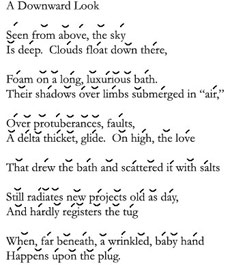Literary Term 31-56 Remix
Dialect: The language of a particular district, class or group of persons; the sounds, grammar and diction employed by people distinguished from others.
Dialectics: Formal debates usually over the nature of truth.
Dichotomy: Split or break between two opposing things.
Diction: They style of speaking or writing as reflected in the choice and use
Didactic: Having to do with the transmissions of information; education.
http://www.youtube.com/watch?v=aGI07rLcDpc&feature=player_embedded
This look familiar to you? Hey! It's foreshadowing Dr. Preston's didactic teaching methods!
Dogmatic: Rigid in beliefs and principles.
Elegy: A mournful poem, especially a funeral song or lament for the dead.
Epic: A long narrative poem unified by a hero who reflects the customs and aspirations of his nation of race as he makes his way through legendary and historic exploits, usually over a long period of time.
Epigram: Witty aphorism.
Epitaph: Any brief description in verse on a tombstone (short formal poem that deceased wishes to be on their tombstone.)
Epithet: A short, descriptive name or phrase that may insult someone's character, characteristics.
Euphemism: The use of an indirect, mild or vague word or expression for one thought to be coarse, offensive, or blunt.
Evocative: A calling forth of memories and sensations; the suggestion or production through artistry and imagination of a sense of reality.
Exposition: Beginning of a story that sets forth facts, ideas, and/or characters, in a detailed explanation.
Expressionism: Movement in art, literature, and music consisting of unrealistic representation of an inner idea or feelings.
Fable: A short, simple story, usually with animals or characters, designed to teach a moral truth.
Fallacy: A false or misleading notion, belief, or argument; any kind of erronous reasoning that makes argument unsound.
Falling Action: Part of the narrative or drama after the climax.
Farce: A boisterous comedy including ludicrous actions and dialogue.
Figurative Language: Apt and imaginative language characterized by figures of speech.
Flashback: A narrative device that flashes back to prior events.
Foil: A person or thing that, by contrast, makes another seem more better or prominent.
Folk Tale: Story passed on by word of mouth.
Foreshadowing: A device to prepare the reader for the outcome of the action.
Free Verse: Verse without conventional metrical pattern, with irregular pattern or no rhyme.

No comments:
Post a Comment